#i made this on a whim
Text
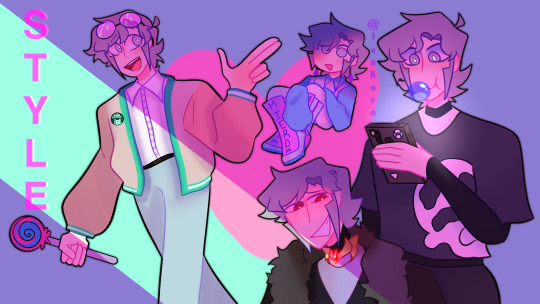
stylin’
#submas#submas art#subway boss emmet#emmet#I made this on a whim#then again my art is only for the funsies#stares at spanish speakers
139 notes
·
View notes
Text

uhhh lazy quick doodle idk
i dont actually ship this but if anybody wants to try and convince me to then go ahead im listening
#silver linings#idk thats the ship name me and my friend came up with#i totally did not make this just to show off that ship name#ii#iii#ii silver spoon#ii clover#silverclover#luckysilver#luckyspoon#cloverspoon#idk.does this even exist#object shows#shitpost#jokeship#crackship#i made this on a whim#zex's art#ii silver linings
17 notes
·
View notes
Text
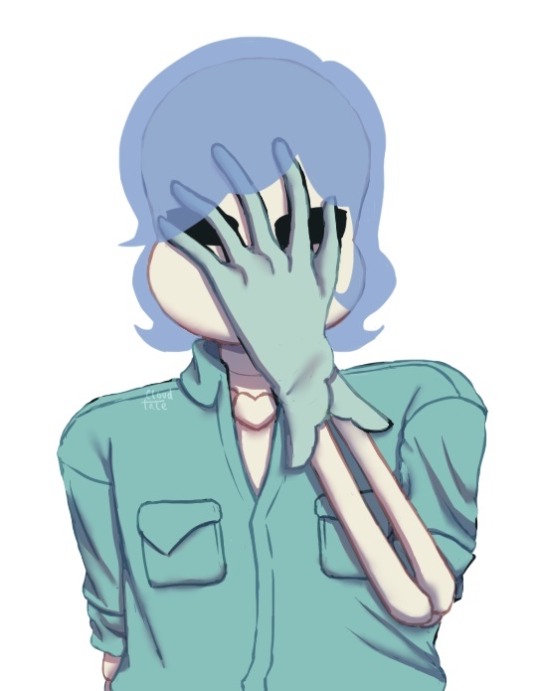
sockets
Fresh by @loverofpiggies
Grraser by @radsee
#david freshgrease#david freese#cloudtale art#utmv#freshgrease#freshgrease david#fresh!sans#greaser!sans#greaser sans#sockets are blank#because i didnt know what to add tbh#i made this on a whim#david freese oc#david freese sans
8 notes
·
View notes
Text
Ok, I have been really getting into the School for Good and Evil (SGE) recently, and I have to share my thoughts on why I think it is a bad adaptation.
I had never even heard of SGE before a few weeks ago, after seeing the trailer for the film. I thought it looked interesting, and I like several of the actors involved with the project, so I thought I'd give it a watch. I quite enjoyed it, even if I thought it was a bit clunky in places.
I then went on to listen to the audiobooks for the first 3 books. Needless to say I was quite surprised by how many differences there were between the film and the books.
While I don't mind so much about the aesthetic changes - such as Agatha not being so 'ugly' (I'll come back to this point later), Tedros's hair, or Anadil not being albino - I feel like this is indicative of something that I feel modern moviemakers have an issue with handling when it comes to adaptations, especially from books: in books, EVERYTHING is based in description, and description matters.
While Tedros's hair is something I can and will look over (I thoroughly enjoyed the actor's performance, and hair is the least of my concerns right now), Agatha and Anadil's appearances are slightly more concerning to me.
I know it can't be easy to find an actor who is simultaneously good for the role acting-wise, and pale enough to at least pass as albino with hair and makeup (preferably actually albino, but needs must), but in terms of this particular character, I was actually quite confused between the film and book versions. Having seen the film first, Anadil's description in the book is basically the complete opposite to the actor, both looks and character-wise (nothing against the actor, I think she did brilliantly with what she was given), and was quite jarring to me - I can't imagine what it must have been like for long-term book fans who had an image of her built up over years.
However, Agatha is a whole other problem. Anyone who follows me should already know that I love Sofia Wylie, and I think she is a wonderful actor, but I just think she is too conventionally attractive to be Agatha. Don't get me wrong, Agatha is beautiful, as is Sofia, but half the point of Agatha in the books is that she sees herself as ugly, and has incredibly low self esteem, to the point where she tries to get Tedros to fall in love with Sophie MULTIPLE times throughout the 3 books I've read, simply because she is insecure in how she is perceived by others, and because she thinks Sophie is pretty, and that being pretty matters. She learns over the course of the story that being conventionally attractive doesn't matter, so much as who you are as a person. One of my favourite books of all time, Roald Dahl's 'The Twits', sums this idea up beautifully:
"If a person has ugly thoughts, it begins to show on the face. And when that person has ugly thoughts every day, every week, every year, the face gets uglier and uglier until it gets so ugly you can hardly bear to look at it. A person who has good thoughts cannot ever be ugly. You can have a wonky nose and a crooked mouth and a double chin and stick-out teeth, but if you have good thoughts they will shine out of your face like sunbeams and you will always look lovely."
As someone who is not conventionally attractive, and also have low self esteem, I feel kind of hollow watching the film now I've read (listened to) the books. Especially because the film cut the scene where Agatha is granted a wish by Professor Dovey to look beautiful, and was treated differently on her way to find a mirror, only to discover Dovey didn't change her appearance at all, it was all down to how she felt within herself. Losing that element of self-perceived ugliness, only to be proven wrong not by how she looks but how she felt, hurts me in a way I can't describe. And I'm in my twenties, I hate to think what that sort of thing would do to a teenager, with my same issues with self-image.
Another issue I have with film!Agatha is her costuming - in the book, she goes out of her way to dress poorly, despite being forced to wear a pink dress. In the film, Agatha has flowers in her hair, nicely done makeup, fancy jewellery, and all her dresses suit her. It makes her entrance to the Evers ball less impressive (whereas the equivalent scene in the book makes a whole deal out of her choosing to dress nicely - Tedros doesn't even recognise her at first). In fact, I think it would have worked even better in the film if they chose to have Agatha dress poorly, as it would make it more obvious to the audience why such an obviously pretty girl would be treated so badly by her better-dressed classmates. In the book, Agatha is also not conventionally attractive, but Sofia Wylie is. The filmmakers should have acknowledged the difference between the two, and used Sofia's beauty to their advantage.
Another reason I think the film is not a great adaptation is because of Sophie. Sophia Anne Caruso does a fantastic job in the role, but that's not the issue - Sophie is just too sympathetic.
In the books, she is vain, shallow, and selfish, constantly putting down others (Agatha especially), will do anything to get what she wants, and thinks that to be Good, all she has to do is be pretty. In the film, she is genuine friends with Agatha from the start (rather than befriending her as a 'good deed'), has a mean-spirited step-mother (who in the books is actually quite nice, Sophie just hates her), and is pushed into doing evil things by others such as Lesso and Rafal, rather than being and becoming evil by herself. It takes away her agency as a character, to do and say and think for herself.
The worst part about this, for me, however, is that I could feel that Sophie was too sympathetic in the film even before I read the books. Her actions were less character-driven, and more plot-driven, and it showed. Her montage of dressing in flashy, stylish clothing while also acting rude and seductive felt really out of place for the Sophie the film had been writing for up to that point. Then I read the books, and it made so much more sense - not only that, but Sophie was actually still putting up a 'sweeter that sugar' façade at that point in the book, trying to get Tedros to fall in love with her.
It's what made her redemption in 'The Last Ever After' that much better - because it came from within her. She was a flawed, wonderfully written character, who at the end of the day just wanted to be loved, but made all the wrong decisions in order to get to that love. But that's why she could never find it - because she was acting selfishly. Agatha found her True Love in Tedros, not because she wanted to (actually they both hated each other initially), but because they wanted to become better people for each other, and were both selfless in their wants - Tedros wants to be a good king FOR his people, and Agatha wants to be a good queen FOR Tedros, so that he can be a good king FOR his people.
With Sophie losing the nastier, EVILLER character traits she had in the books, it cheapens the win that Good has over Evil.
And that's another issue I had - the film suffers from the Percy Jackson effect. They tried to have their cake and eat it too. Introducing Rafal AS Rafal and not just the School Master, as well as combining Lady Lesso with Evelyn Sader, has made making sequels to the film much harder for them, just like the Percy Jackson films did with Kronos.
Not only that, but like the Percy Jackson films, the SGE film tries to establish the characters as Good and Evil. On a surface level, that must seem obvious - The School for Good and Evil is literally the name of the series. But that's what the filmmakers failed to understand about the books: there was still nuance. In the first Percy Jackson film, Hades was portrayed as if he were the devil just because he was God of the Dead, when in the books he was actually just as in the wrong as Zeus or Poseidon, and although he made some mistakes, he ultimately was a flawed person, who just wanted his stuff back. Rafal has kind of had the same treatment - yes, he was basically Evil Incarnate in the books, but he was still a person, who regretted killing his brother in his bid for power, and truly believed he loved Sophie.
Another issue I had was with how the film treated the Good students, the princesses in particular. In the books, Beatrix, Millicent and their friends, while not very nice to Agatha, were still good people. They wished for Princes in the wish fish scene not because they were selfish and obnoxious (like in the film), but because they didn't want to fail their classes. They had their own wants and needs, and their own strengths and weaknesses. In the film, Beatrix in particular (while phenomenally cast) came off as that typical Regina George type character, with (again) very little nuance. I actually quite liked Beatrix in the book - she was bubbly, helpful when she wanted to be, and was happy for Agatha when she 'became' beautiful. The film strips her of all that, making her snide and arrogant - something I wish the film gave to Sophie.
Just so that I don't end on a mean note, here are some things I really liked about the film that I haven't already mentioned:
Hort and Hester - both were born for the roles they played, and were styled to perfection
the CGI, which was beautiful
Charlize Theron as Lady Lesso, truly stunning
Kit Young as Rhian and Rafal, especially the fight scene
the acting - while I have issues with the characterisation and some appearances, every single actor knocked it out the park, I honestly can't think of a weak link
the chemistry between Tedros and Agatha was on point, and I loved the scene where Agatha tripped and Tedros caught her
Tedros's fight scenes, which were well choreographed
the hair and makeup, especially for Beatrix and Lesso, their hair must have taken HOURS to get that good
Kiko wanting to be a cat so she can sleep under a warm stove, which was painfully in character
the princess dresses were very pretty, I wish I could wear one
In conclusion, I think SGE would work better as a tv series, with more time to flesh out the nuances of the themes and characters.
#sge#school for good and evil#school for good and evil spoilers#sge spoilers#i made this on a whim#and it turned into an essay#i keep doing this#its really a problem
98 notes
·
View notes
Text
Whenever I think about the idv AU where everyone's just peacefully living in the manor, I like to imagine that some characters have those special personalized rooms in Encanto (or actually maybe more of DRV3 with their research labs?)
Like I'm not sure how big Oletus Manor actually is, but they could have magical doors in this AU for all I know.
Also I get that this takes place in the past but if they have the groundbreaking technology to launch a human on a chair with oversized fireworks or the magic for the hunters to do whatever they do idt this is too far-fetched
This manor's a mess, probably, or maybe they have magic for that too, idk ¯\(°_o)/¯
#rosa.txt#identity v headcanons#ik the survivor rooms look plain in canon#but idk imagine the artists with their own little rooms where they do their own little things#joseph and his little photo studio#antonio with a music room#i am running out of ideas#i made this on a whim#ok but what if demi had a mini bar somewhere#identity v#idv
16 notes
·
View notes
Text
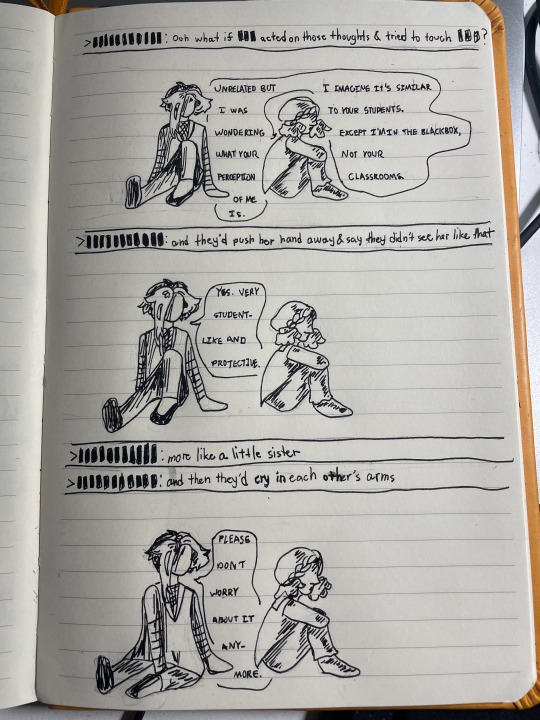
#tw implied sa#i made this on a whim#all kassidy + joan dialogue is paraphrased exchanges from online conversations fun fact#kassidy james#eliza joan#art
0 notes
Text
thinking about changing my username and pfp. we'll see if I get around to it
#I made this on a whim#with random pics in my phone#I should see if there is a Paks fandom at all#but either way meh
0 notes
Text

[ID: Warning decal. Says, "Warning!" in white on red for high visibility, then in black impact font, "This machine does not know the difference between metal and flesh, but cares a lot, so please stay out of its way. It would be very sad if it accidentally hurt you." /end ID]
#it's been a long month#image description#warning decal#warning#made this on a whim a couple days ago and it's proving more useful than I would like#sorry the spacing is bad the UI for Krita on Windows is kinda fucked and I don't know how to fix it
4K notes
·
View notes
Text
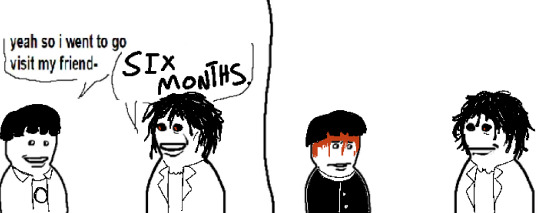
bro’s got beef with a middle schooler
#mp100#mob psycho 100#cowardly draws#made on a whim. Outta nowhere. For funsies#Keiji Mogami#shigeo kageyama#I know mobs in the wrong outfit hush
926 notes
·
View notes
Text
So, uhh... I made a thing.
1 note
·
View note
Note
That Etho piece is soooo 🥰🥰🥰
But that Joel Sanrio (is that even the right wording lmao) aaaaa your Joel is such a good Joel. Lil guy. Lil ogre guy. Smol. So round. So squish. I can see why etho's obsessed. The Lil cutie

^_^
#ask stufff#stufffsart#Smallishbeans#Etho#BoatBoys#trafficblr#mcytblr#idk I made him on a whim#also I felll asleep midway through answering this hello
582 notes
·
View notes
Text
#pls do tell me if I forgot something important I made this on a whim#and mostly based on my own interests lmao#sunny polls
5K notes
·
View notes
Text


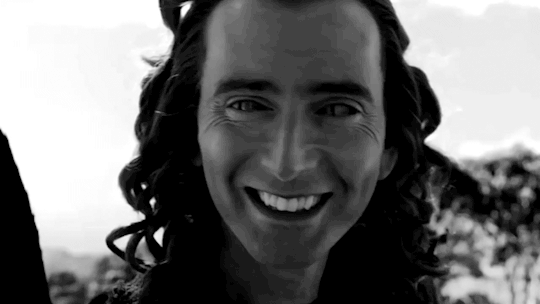


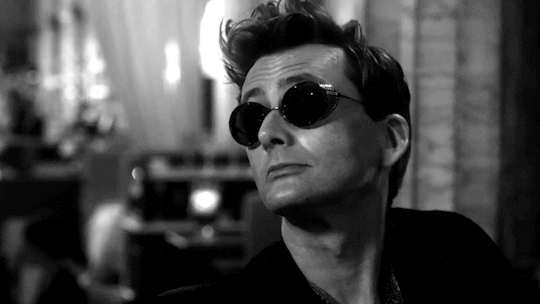


# i know what you are
#someone had to do it at some point so I decided to take one for the team#good omens#good omens season 2#good omens season 2 trailer#ineffable husbands#aziraphale x crowley#crowley x aziraphale#aziracrow#gif#gifs#gifset#my gifs#I made this in like ten minutes on a whim and its kind of ugly lmao but thanks for the notes guys you are all so lovely
2K notes
·
View notes
Text
Thinking about a bingqiu Dreamling AU where Shen Yuan and Shang Qinghua are both bored deities, just sort of taking a brief sojourn through the mortal world to shoot the shit and see some interesting monster or other that Shen Yuan has heard about, when they come across a tea house and decide to take a break and do some people-watching instead.
Shen Yuan is well into something of a shut-in phase, which Shang Qinghua doesn't like, mostly because when Shen Yuan is in those phases he doesn't do particularly well either. Shen Yuan's a social butterfly, for however little he cares to actually acknowledge it about himself, and his critique of Shang Qinghua's literary masterpieces gets so much harsher when he's not getting enough enrichment.
So when they overhear one of the kitchen boys solemnly insisting that he is going to do everything in his power to never die, and Shen Yuan laments that the boy would probably regret such a wish if it came true, Shang Qinghua decides to bestow a rare bit of godly power onto this mortal and grant his wish.
He doesn't make him a god, of course, that wouldn't even be in his ability. At least, not without using up more time and effort than he's prepared to expend on this one random kid. But immortality on its own is not that difficult. The boy will still finish growing up, and will still be able to be harmed, to know hunger and pain and illness. It just won't ever kill him.
Shen Yuan sighs that it's a cruel thing to do to a mortal, especially one with such low odds of ever cultivating other skills to mitigate the potential torment of it all. But Shang Qinghua just shrugs and they place bets, that this boy will ask for the immortality to be revoked in a hundred years, or two hundred, or so on, or else he won't. Shen Qingqiu approaches the kitchen boy and flusters and bewilders him by telling him to meet him back here again in a hundred years time.
A hundred years later, the tea house is larger. The boy has grown to be a striking young man, who looks at Shen Yuan with wariness and something else, something almost like awe, as he asks what manner of creature he's made this bargain with. Shen Yuan assures him that he has no nefarious intentions, and instead asks Luo Binghe how the past century of his life has gone.
Horribly, at least at first. Binghe's mother had already died by the time they met, but afterwards he managed to earn enough money to travel to a nearby sect. Working in the tea house's kitchen was just a minor stopover along the way. Shen Yuan was wrong, it seems, about his odds of becoming a cultivator -- Luo Binghe earned entry as a disciple.
Yet, he had no success. The master who took him on was unaccountably cruel and mercurial, and Luo Binghe's attempts to cultivate failed. Looking back he sees now that there were many times when he should have died but didn't, but when it was all happening he just thought himself lucky. At least until an enemy sect attacked a cultivation conference, and he suffered mortal wounds that absolutely should have killed him (or anyone) but still didn't die. (No demon race or abyss in this AU, but there are still demonic and fantastical creatures.)
His cruel master, upon witnessing this, accused him of heretical practices and tried to kill him as well by flinging him off the edge of a gorge. The fall was terrible. Binghe lay at the bottom in a horrifying state, injured beyond reason and yet, still, he didn't die. Eventually his body recovered enough for him to drag himself out, and once he did the only thing on his mind was getting revenge. For the next several decades he managed to ingratiate himself to all manner of potential allies, forging alliances, accumulating blackmail, and convincing people that he had to be some powerful cultivator through his supernatural resilience, lack of visible aging, and a lot of bluffing. He got revenge on his old teacher, drove his first sect into ruin, and rose to prominence as a feared and respected leader of the cultivation world.
Shen Yuan listens with clear interest, asking plenty of questions and seemingly quite taken up with the story. At the conclusion, Luo Binghe admits that his actual cultivation is still mostly a matter of smoke and mirrors, and wonders if -- now that the hundred years have passed -- Shen Yuan means to strip his immortality from him.
Shen Yuan asks if Luo Binghe wants that. When Luo Binghe says no, he accepts the answer, and tells him to meet him back here again in another hundred years. Luo Binghe calls after him, but before he can ask anything more, Shen Yuan has disappeared again.
A hundred years later, Binghe arrives back at the tea house with an entourage befitting of an emperor. The tea house has also expanded. Luo Binghe orders a lavish feast from them, which everyone hastens to provide. He's spent the past several decades consolidating his power, forging alliances with key political players via several marriages, producing heirs, and crushing his enemies. As he brags about the state of his massive harem to Shen Yuan, the deity's eyes begin to glaze over. He doesn't seem impressed. He also doesn't seem to care much for the food, and eventually his attention is stolen away by a conversation at another table. The diners are discussing the exploits of a promising new poet and novelist. Try as he might, Luo Binghe fails to regain Shen Yuan's attention before the evening is done. Shen Yuan doesn't think it's a big deal -- after all, if Binghe is still riding on top of the world, he's probably not going to want his immortality gift revoked just yet!
Another hundred years go by. The tea house has returned to a more modest situation, the next time Shen Yuan sets foot in it. He waits an unusually long while for his guest to arrive, and when he does, he's almost stopped at the door by the tea house's servers. It's only when Shen Yuan bids them let him through that Luo Binghe is able to come to the table, almost collapsing against it and desperately falling onto the arrangement of snacks with obvious hunger.
Shen Yuan wonders if this, now, will be when the boy (no longer a boy) asks for the immortality to be revoked. Surprisingly, he finds himself resistant to the idea, even though it's also clear that the game has run too long. Maybe hundred year check-ins were too short? He doesn't like the implications of what's gone on, even if he's not really surprised about it either.
Between desperate mouthfuls of food, Luo Binghe explains that without mastering inedia, going hungry but never dying is a deeply unpleasant experience. Shen Yuan orders more food. Once Binghe has finally eaten his fill, he begins, haltingly, to explain his situation. His clothes are ragged, he is painfully thin, and his gaze is haunted.
Apparently, several of his wives conspired to assassinate him, despite his reputation as unkillable. Realizing that most poisons and such didn't kill him, but that he could still be incapacitated, they hatched a scheme to dose his food with a powerful sleeping agent, and then walled him up in a famous ancestral tomb. They went to great length to ensure that it was impossible to escape from. It took Binghe decades to do it anyway, digging away at the floors, and when he got out he found that his power base had collapsed. In-fighting and the incursion of his enemies had led to the deaths of all of his children, and what wives had survived had either fled or remarried. Not that he particularly wanted them back at that point, since the ones actually most loyal to him had also been killed early on after his own "death". His face marked him, to the eyes of his enemy, as a surviving descendant of himself. He was hunted down, chased across the continent and back again, until he managed to fall into enough obscurity that his pursuers abandoned the chase. Except that he has nothing, and any time he tries to regain something, he runs the risk of being hounded again. Those who might see some potential in him still remember the collapse of his recent "dynasty" and slam doors in his face, or else try and turn him over to those now in power in pursuit of a reward. Those who don't know that much see only a dirty beggar, and usually run him off on that basis instead.
Shen Yuan, almost hesitant, asks if Luo Binghe would like to have his immortality revoked.
Luo Binghe declines. How will he be able to take revenge on those who wronged him if he is dead? He has a hit list a mile long by now.
Which is definitely not the most noble of reasons to persist, but Shen Yuan finds himself reluctant to ask twice. Instead he orders more food, and then even reserves one of the traveler's rooms above the tea house for several days. By then the sky is turning grey, and Luo Binghe is losing his apparent battle with exhaustion. Shen Yuan presses the key into his hand, thinking it's probably not enough, but there are limits to how much gods are supposed to interfere and Shang Qinghua already stretched them to the breaking point with this entire scenario.
He leaves, not seeing the hand that reaches after him just before he is out of the door and gone.
Another hundred years pass. This time, Shen Yuan arrives to find Luo Binghe already waiting for him. He isn't surprised to see that Binghe's situation has visibly improved -- maybe he was keeping closer tabs on him, just a little bit, for this past while. If only to be sure he wouldn't have to warn the tea house workers to expect an unorthodox visitor again! But no, Binghe has been doing well enough for himself. No more harems or thrones, though. He dresses more like a well-off merchant now, deliberately posing as his own mortal descendant rather than as a great immortal cultivator. The food at the table looks far more delicious than usual too (Binghe commandeered the tea house's kitchen himself this time). As they chat, Shen Yuan is regaled with the exploits of Luo Binghe's travels and adventures, how even though he initially set out to claim revenge on those who overthrew him, by the time he was in a position to actually do so they had already died of the usual causes (time, illness, their own schemes backfiring, etc). Subsequently, only their children and grandchildren were left with the scraps of power they had obtained, and when one of those children employed Luo Binghe as a bodyguard, his initial plan to assassinate them eventually fell by the wayside. After all, the wrongdoings weren't actually theirs. From that point, Binghe was able to restore himself to a more comfortable life, joining his new employer on their travels until he had set aside enough earnings to take his leave before his youthful good-looks earned him suspicion. He then began investing in travel and trade, specifically cargo ships, because never spending too long in the same place or around the same people helped disguise his immortality. He had found that, at least for now, this served him better than playing the part of a cultivator. It also gave him time to try and actually repair his ruined cultivation base somewhat, and fighting pirates proved very diverting.
Binghe is midway through recounting his adventures with a gigantic sea monster, while Shen Yuan hangs on every word, when they're interrupted by the arrival of a brash young mistress, clearly wealthy and trained in cultivation. The young lady declares that there is a rumor that a fallen god and a demon meet in this tea house once a century, that they wield strange powers, etc etc, and she intends to interrogate them both with the assistance of her hired muscle and her own spiritual weapon, and discover the truth of the matter. Then she whips out, well, a whip!
Before Shen Yuan can deal with the matter, Luo Binghe is already on his feet, disarming the goons and breaking a few arms in the process. Shen Yuan is so distracted that he almost misses the whip aimed right for him, but before Binghe can catch the barbed weapon with his bare hand (wtf, Binghe, no) Shen Yuan deflects it with a wave of his fan, and then efficiently knocks the troublesome young lady unconscious. The hired muscle flees, Shen Yuan arranges for their assailant to be placed in a room upstairs until she regains consciousness, and he and Binghe resume their meal and conversation in relative peace.
Even though it's clear that Luo Binghe has not yet reached the end of his tolerance for life, Shen Yuan nevertheless finds himself strangely reluctant to part ways at the end of the night. Still, he does, because that's what is expected of him, gently denying Luo Binghe's suggestions that they find some other establishment to continue their conversation at. He also has to investigate these "rumors" that the young lady mentioned. It's probably nothing (Shang Qinghua has a loose tongue when he's drunk, and a lot of imaginative storytellers have frequented this tea house over the years) but he doesn't like being caught unawares like that. Heavenly politics are... complicated, it's best not to court unwanted attention in any capacity.
Another hundred years go by. This time, when they meet at the tea house, Luo Binghe asks Shen Yuan why he keeps it up. Why did he pick Binghe? What is he really after? When Shen Yuan fails to give any kind of clear answer, Luo Binghe shoots his shot and makes a (very obvious) move on him.
Shen Yuan, flustered, gets up and flees. Ignoring Luo Binghe's calls after him. It just doesn't make any sense! Why would Binghe do that?! He's a man who once had a harem of wives in the triple digits! Clearly he's not gay, so what was that all about? Was he just messing with him?! How dare he! Etc, etc.
Another century passes. Luo Binghe waits at the tea house, which has fallen onto hard times again. With the construction of some new roadways, travelers no longer pass through as often. Binghe listens, worried, to the proprietor's laments that this old place will probably not be around in another hundred years. He listens because he has no one else to speak to, because Shen Yuan has not shown up. Not that morning, not during the day, not come evening, and not now that it is closing time. Binghe nevertheless charms and bribes the proprietor to let him stay even after the place has shuttered.
It seems damning, of course. He pressed too hard and now his mysterious benefactor wants nothing more to do with him. Except, no, he refuses to accept that. He's still immortal. And he has gleaned enough of Shen Yuan's character by now that he thinks that even if he was rejected, he would be let down more clearly and gently than this. The more he thinks about it, the less willing Luo Binghe is to believe that he has been deliberately stood up (also, since the tenor of his confession was different from Hob Gadling's, he never delivered an ultimatum about what it might imply when they met up again).
Over the centuries, Luo Binghe has built up a few contacts with similarly strange and supernatural stories. Cultivators, sure, but also others, fortune tellers and people of strange ancestry, questionable abilities, those who have interacted with powerful beings of mysterious provenance. He makes his way to a certain gambling den, frequented often by such people, and while he flashes around enough money to draw curiosity, he collects information. Shen Yuan wasn't the only person who started paying more attention to the kinds of rumors surrounding the two of them after their confrontation with the young cultivator a couple centuries ago. And in fact, Luo Binghe has been spending many, many years trying to find out more about his mystery man. Though, too many potential deities and immortals fit his description for him to have ever conclusively figured much out.
This is how Binghe gets wind of a rumor that an eccentric occultist has somehow captured a god in his basement...
#svsss#bingqiu#scum villain's self saving system#bingyuan#scum villain#long post#whoever the roderick burgess proxy is here he's got a big storm coming#going the classic dreamling fanfic route and having shen yuan get rescued instead of having to escape by himself#shang qinghua has definitely made other people immortal on various whims and impulses#he bestows his gift recklessly on a betrayed young prince at one point and the divine emperor is just like 'enough!'#'if you're doing to do this I'm going to make you babysit the results! you descend and work for that prince now!' so he's got his hands ful#dreamling might be the situation but shen yuan isn't much of a dream of the endless type#and luo binghe is nothing like hob gadling lol#'I want to live because I love life!' nope it's mostly about spite#the hardest part of this AU is imagining a universe where shen yuan would ignore luo binghe for long enough to let actual centuries pass
336 notes
·
View notes
Text
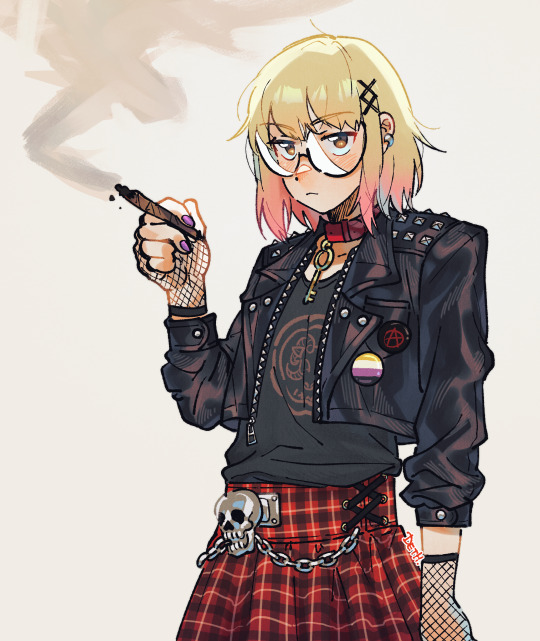

just a small whimsical creature
1K notes
·
View notes